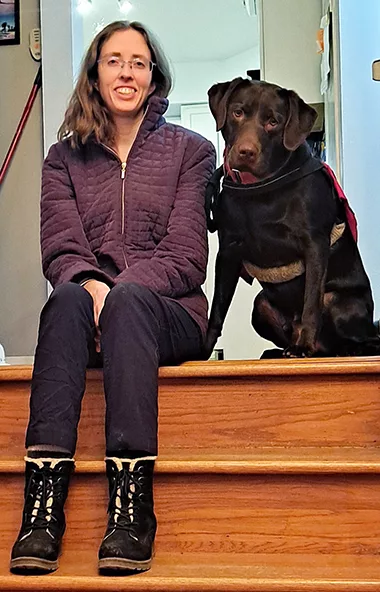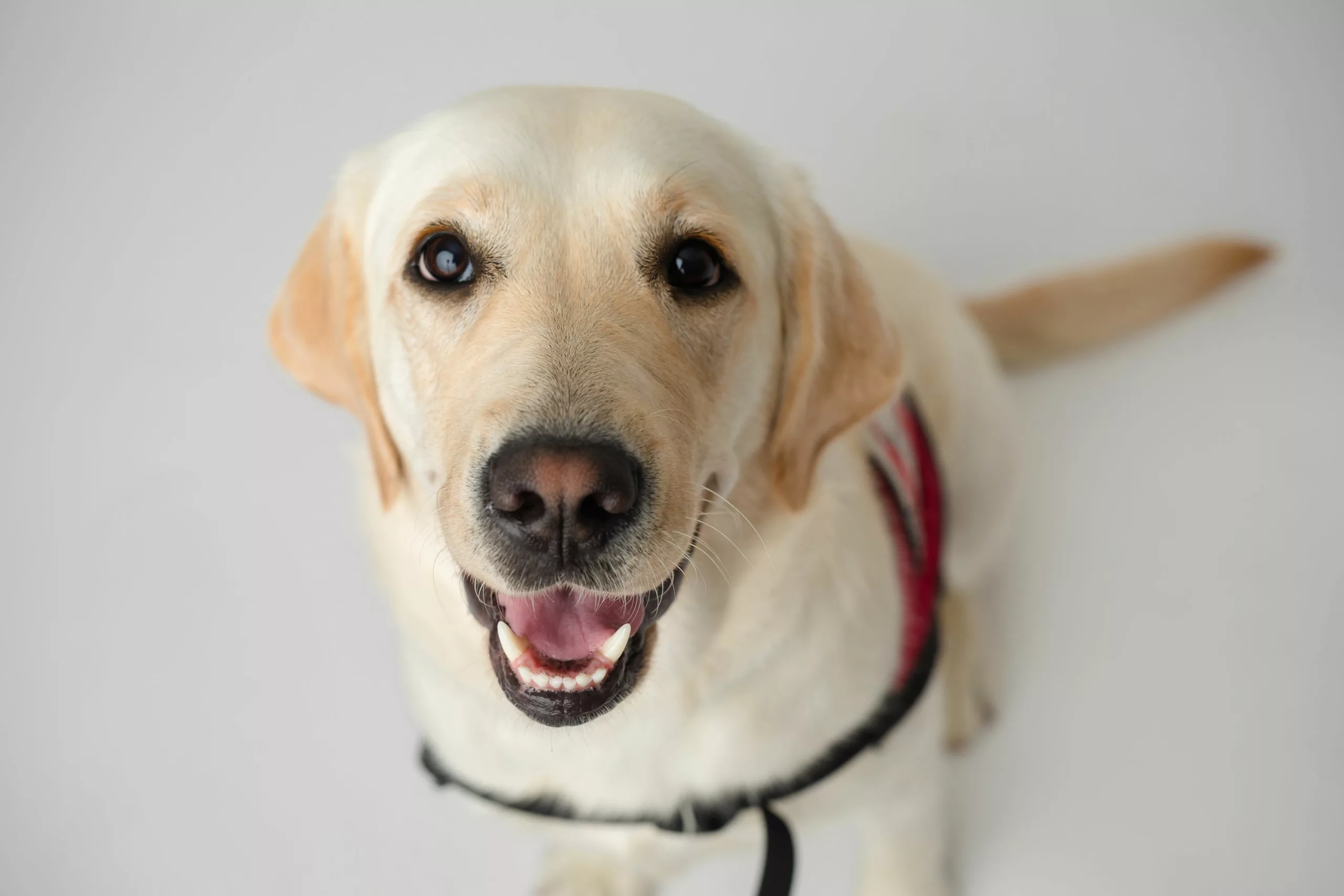By Jessica Kellogg -
Imagine for a moment that the seemingly simple act of bending down to pick up a dropped item could stop your breathing. This is the reality for Tabitha Althoff, whose Ehlers-Danlos Syndrome (EDS) can cause her ribs to interlock and block her lungs from inflating any time she bends down. “You don’t realize how much you drop until someone is there nudging you with it.” EDS is a condition that affects the body’s connective tissue and can cause joints to dislocate for no reason. However, Tabitha also has Ankylosing Spondylitis, which causes the bones in the spine to fuse over time. As she puts it, “I have two diseases battling each other all the time. I’m very stiff in the morning from my spine bambooing while I sleep, but by the end of the day, the Ehlers-Danlos has kicked in, and my joints fall apart.”
 Having two conflicting conditions like this certainly brings to mind Murphy’s Law. In this case, though, Murphy’s Law is a 2-year-old chocolate Labrador who helps Tabitha keep from having things go wrong.
Having two conflicting conditions like this certainly brings to mind Murphy’s Law. In this case, though, Murphy’s Law is a 2-year-old chocolate Labrador who helps Tabitha keep from having things go wrong.
Murphy is unlike most dogs in the Can Do Canines program who have been born into the program and raised by a team of volunteers. Tabitha received him from a private breeder when he was 12 weeks old. “After my first service dog retired . . . I reached out to a number of other organizations who all said I wasn’t disabled enough for a service dog. So I started working with Murphy.”
For their first year together, Tabitha spent a lot of time working on his basic obedience training. In one of their puppy classes, a classmate had a friend who volunteered with Can Do Canines and recommended Tabitha reach out. “After a year, we had a solid start, but the trainers at Can Do Canines had the resources to really help me with the fine-tuning. The facility in New Hope was amazing. They were able to quickly identify and train beneficial tasks that I didn’t know were even possible.” Can Do Canines staff were also able to help Tabitha set up her home and office to make those spaces safer and more accessible. “Even now that we’re certified, if I need help with a command or task, they’re always just a text message away.”
Because of Tabitha’s conflicting conditions, Murphy has been trained to assist with two different sets of needs. “He has two different harnesses based on my needs, and he can differentiate between the tasking. He slows me down in the mornings to keep me from overdoing, then switches to more stabilization or object retrieval in the afternoons.” But when the harness comes off, “he’s a total ham and a lot of fun.”
“Having Murphy has been a real game changer. I have more normalcy in my life, more independence, and less reliance on a cane. Life has become a lot easier for me and my family with Murphy. He does so much.”
Before getting Murphy, Tabitha was facing the real possibility of having to leave her teaching job because of the impact it was having on her life. But with his assistance, Tabitha is able to continue working with students.
“With EDS and Ankylosing Spondylitis, there is a level of built-in anxiety every time I walk out the door. But with Murphy, I know he can help me or get me somewhere safe. He’s allowed me to really be more present and active in my life and with my family, not just staying behind the scenes.”

 Hearing Assist Dog Jacqui Brings Natalie From Isolation to Independence
Hearing Assist Dog Jacqui Brings Natalie From Isolation to Independence




